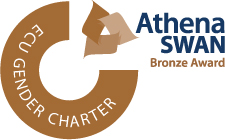About
The Eleanor Glanville Institute (EGI), based at the University of Lincoln, is a leading EDI institute offering international excellence. Our research challenges social exclusion and inequality and builds evidence to argue for transformative change. Our sector-leading approach to contemporary EDI is founded on the need to ask questions, to challenge, to seek solutions, to look for evidence of change, and to measure impact. Our research transforms policy and EDI practice across businesses, organisations and government, leading to greater productivity, creativity, and positive social impact
The EGI is the University's central department for equality, diversity and inclusion (EDI) ─ it is the hub of all EDI activity at the University of Lincoln. It was set up in 2015 (as the Eleanor Glanville Centre) to ensure that EDI work across the University was developed and supported in a holistic and coordinated way, working in partnership with stakeholders to deliver the strategic ambitions of the University and drive culture change.
The Institute is a unique ‘hybrid’ department. Half of the staff are academics and half are EDI practitioners – they're professional services staff – and they all work together. From the outset, our guiding principles have been to underpin the practice of EDI with fundamental research, building researcher–practitioner collaborations that ask the questions, develop disruptive and transformative solutions to the inequalities that exist, and develop the mechanisms to measure change and impact and evaluate our progress towards achieving our ambitions.
Evidence — Action — Impact
 From whence we came: "In 2012, when we first started to consider how to improve inclusion and diversity across the institution, it was abundantly clear that we would need to adopt a new approach to effect any change – over 30 years of significant investment in ‘traditional EDI’ failed to create a fully diverse workforce in the UK. To impact the diversity of the University, first we would need to tackle the underpinning culture, our attitudes, our behaviours. To do that effectively we needed to adopt a 'transformational and progressive EDI' approach, founded on the need to ask questions, to challenge, to seek solutions, to look for evidence of change, to measure impact. To do that efficiently, we need to all work together – a holistic and coordinated approach across the whole institution. Our journey started in 2012 – our journey continues..."
From whence we came: "In 2012, when we first started to consider how to improve inclusion and diversity across the institution, it was abundantly clear that we would need to adopt a new approach to effect any change – over 30 years of significant investment in ‘traditional EDI’ failed to create a fully diverse workforce in the UK. To impact the diversity of the University, first we would need to tackle the underpinning culture, our attitudes, our behaviours. To do that effectively we needed to adopt a 'transformational and progressive EDI' approach, founded on the need to ask questions, to challenge, to seek solutions, to look for evidence of change, to measure impact. To do that efficiently, we need to all work together – a holistic and coordinated approach across the whole institution. Our journey started in 2012 – our journey continues..."
Prof Belinda Colston, Founding Director
Our aim is to support and stimulate greater diversity across the University in both staff and students, and research and teaching, to foster a greater sense of belonging for all ─ because belonging improves learning. Our work on reducing the ethnic minority attainment gap, well ahead of the sector, tells us that.
Genuinely exploring different perspectives – whether from our culture, our ethnicity, our sex, our sexual orientation, disability, beliefs or our identity – challenges established ideas and enables us to create new insight and make new discoveries. It’s not just who is doing the research that matters, but what research is being done, how the research is being done, who is being talked to, whose stories are being included.
We want our staff and students to thrive on difference, value ‘disagreeing well’, and have deep curiosity across disciplines.
Our core aims
- Ensuring no one is left behind: Developing and championing activities, initiatives and research that aim to 'balance the bias' at all levels of the University and beyond
- Creating the evidence base: Underpinning our core commitment to facilitate the sustainable development of an inclusive culture across the University and in wider society is the interdisciplinary research that develops our knowledge and understanding of the biases that lead to barriers, and allows mitigation to be developed, tested and evaluated
- Influencing policy and practice: We specialise in the development and evaluation of EDI strategies and interventions and their impact, both within the University and across the sector, and outcomes of our research inform and influence evidence-based policy and shape best-practice both within the UK and internationally
- Sustainable development of an inclusive culture: Building a fully-integrated inclusive culture within the operational and core business of the University starts with engagement and awareness-raising
Success is measured through the impact we generate – through establishing a Centre for Excellence – through influencing national and international policy – through making a difference!















